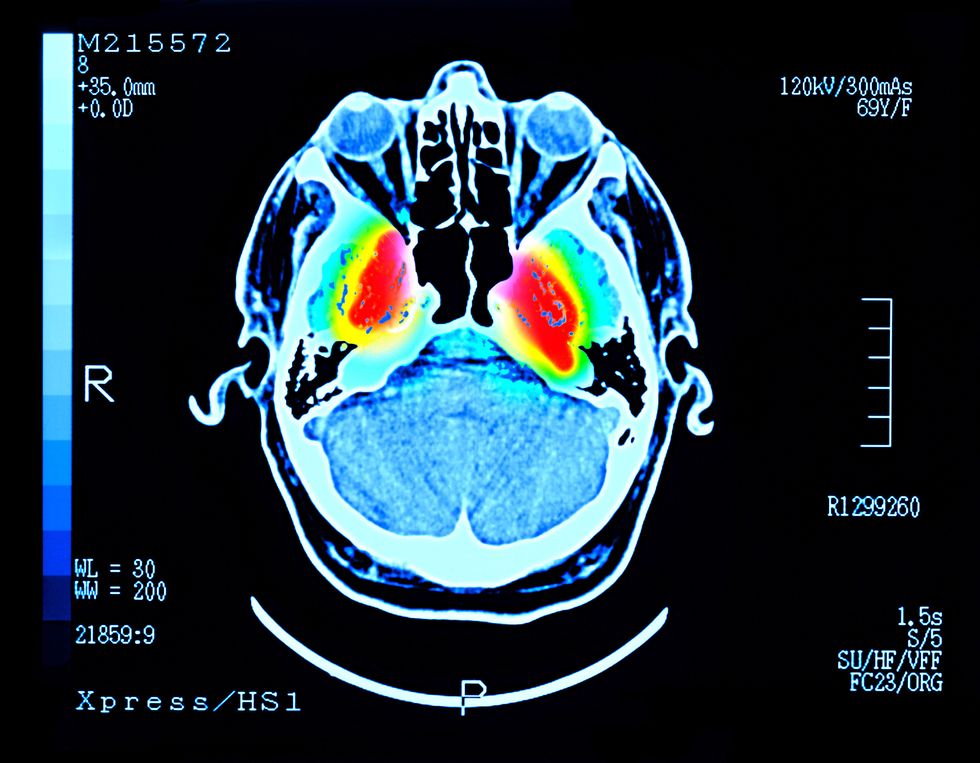Dementia breakthrough as natural supplement that enhances muscle strength offers memory 'benefits'

The findings could open a new avenue to maintaining cognitive health as people age
Don't Miss
Most Read
A popular supplement known for boosting muscle strength is gaining recognition for its role in brain health, with researchers saying it may offer a promising approach to supporting Alzheimer's patients.
Scientists at the University of Kansas Medical Center conducted the first study examining creatine's effects on people with the neurodegenerative disease.
Their findings represent potentially accessible interventions for maintaining cognitive health as people age, with the supplements being readily available over the counter.
The Kansas pilot study involved 19 participants with Alzheimer's disease aged 60-90, who took 20 grams of creatine monohydrate daily for eight weeks.

Creatine is readily available over the counter
| PAThis dosage was four times higher than the standard five grams typically used for athletic performance.
Researchers chose the higher dose, hoping to increase the supplement's chances of reaching the brain, as creatine typically enters muscles first. Participants mixed the powder into beverages of their choice.
Blood tests were conducted at baseline after four weeks and eight weeks. Magnetic resonance spectroscopy imaging showed an 11 per cent increase in brain creatine levels after eight weeks.
The study found the supplements produced moderate improvements in working memory and executive function.
"These preliminary results suggest that there are good things happening here, that creatine has a benefit," said Matthew Taylor, Ph.D., assistant professor of dietetics and nutrition at KU School of Health Professions, who led the creatine study. "This is a great rationale for doing more clinical trials with larger sample sizes."
While creatine is generally deemed safe, there are potential risks and caveats to be aware of, particularly for individuals with pre-existing conditions. It is therefore crucial to be informed about potential side effects and to consult a healthcare specialist before starting a new supplement routine.
Meanwhile, researchers at King's College London have discovered that daily prebiotic supplements can enhance memory test scores in twins over 60.
The study featured 36 pairs of twins over 60 in a double-blinded trial testing two plant fibre prebiotics.
Researchers used inulin, a dietary fibre, and fructooligosaccharide (FOS), a plant carbohydrate commonly used as a natural sweetener.
LATEST DEVELOPMENTS

Supplements could support living more healthily for longer
|GETTY
One twin from each pair received a daily prebiotic in protein powder, while the other took a placebo. After twelve weeks, twins who took inulin or FOS generally scored higher on cognitive tests.
The study, published in Nature Communications, utilised KCL's position as home to the UK's largest adult twin registry. This approach allowed researchers to differentiate between genetic and environmental influences on cognitive health.
Mary Ni Lochlainn, a geriatric medicine researcher at King's College London, expressed similar optimism about the prebiotic findings. "We are excited to see these changes in just 12 weeks. This holds huge promise for enhancing brain health and memory in our aging population," she said.
"Unlocking the secrets of the gut-brain axis could offer new approaches for living more healthily for longer".











